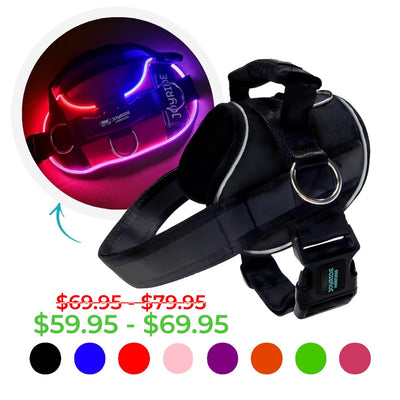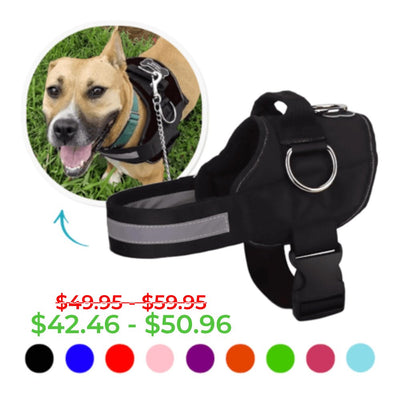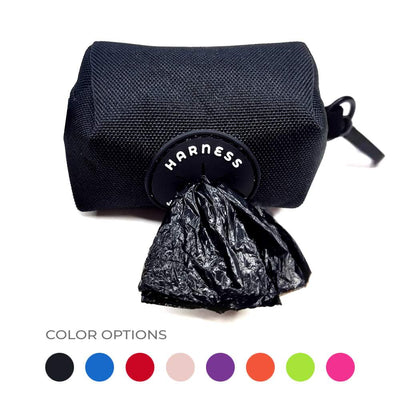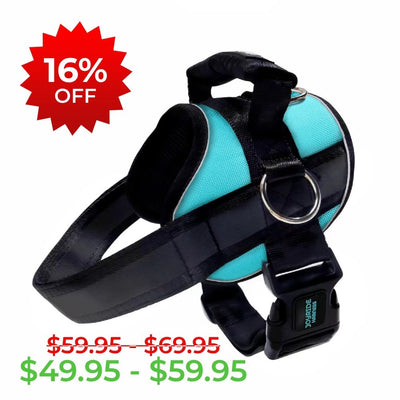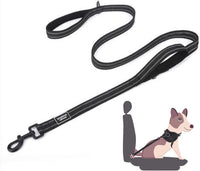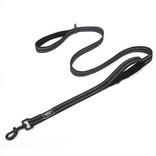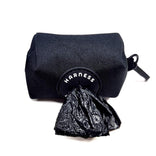Are Harnesses Better Than Collars for Dogs?

Every dog parent should consider a crucial question when deciding on proper equipment for their pet. Collar or harness? If you step into a pet store, you are overwhelmed with options, from a basic buckle collar to a sophisticated multi-strap harness. Deciding whether to go with a dog harness or collar matters, since it makes a difference to your dog's comfort, safety, and attitude during a walk.
This controversial issue between pet owners, vet practitioners, and dog trainers has various talking points. You should be aware of the benefits and drawbacks of each option to reach a wise conclusion suitable to your dog's requirements, dimensions, and character.
Why Vets Recommend and Prefer Harnesses
Less Strain to Neck - Preventing Injuries
Harnesses distribute your dog's pull force across their shoulders and chest, rather than concentrating it on their neck. This construction eliminates dog neck irritation from a collar, something that occurs to dogs who tend to pull during a walk. Dogs with a breathing issue, such as bulldogs or pugs, benefit substantially from this manner of pressure distribution.

Improved Control During Training
Trainers generally recommend harnesses since they are less harmful to dogs. If your dog pulls, a harness directs them back to you more effectively than a collar. This increased sense of control assists nervous dogs and their owners to be more confident during walking.
Protection to Sensitive Breeds
Tiny dogs and dogs with fragile necks require additional protection with harnesses. Chihuahuas, Yorkshire terriers, and toy breeds possess fragile windpipes, and they are susceptible to damage from a collar's pressure, even a gentle tug. Are harnesses better than collars for dogs? The answer is often yes, especially for these smaller breeds.
Why Collars Were Once Preferred
Convenient and Portable
Collars were useful during short outings. Collars were easy to wear and remove, and they were easily adjusted. In well-mannered dogs who walk appropriately off a leash, a standard collar can still allow for control. But a harness provides more support and peace of mind to all dog owners.
Affordable Repairs
Good collars were generally less expensive than compatible harnesses and required fewer replaceable parts. They were simple to maintain and wash, making them suitable for pet owners who wish to conserve money or who like to keep things straightforward. Yet, we now know that harnesses present more of a long-lasting investment, as well as being beneficial for your canine friend.
ID Tags
Collars were a simple way to display ID tags, so they would assist with keeping dogs secure. Some dog owners generally wanted their dog to wear a collar year-round to identify them, and you can still do this if you plan to swap for a harness for walks.
Is a harness or collar better for a puppy? Collars were once the norm, but vets and other dog specialists alike now suggest harnesses for most breeds and dog owners.

Why Most Individuals Employ Harnesses
Harnesses are superior to collars for nearly every dog and occasion. They are less dangerous, assist with training, and are easier to walk. Investing in a quality harness will end up saving you money since it means less time with a vet and better days out. For those searching for the best dog running harness, adjustable options with secure straps are a smart choice.
Select a harness with adjustable straps so they fit comfortably without restricting action. The chest section should be gentle and not bother your dog. The back clip should allow your dog's shoulders to go where they want. Take precise measurements and experiment with styles to achieve a comfortable fit.
Picking the Right Option for Your Canine
The harness versus collar debate doesn't require an either-or decision. Many successful dog owners use both: a collar for identification and quick backyard trips, plus a harness for regular walks and training sessions. This combination approach maximizes safety while maintaining convenience.
Consider what your dog requires, how he or she moves, and how his or her body appears when making a decision. Your vet can offer personalized recommendations by considering your dog's health and breed.
Are harnesses better than collars? Generally, the answer is a resounding yes!

